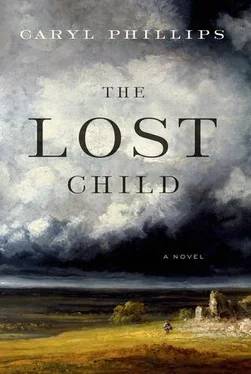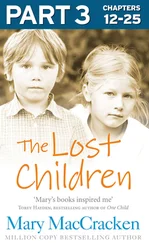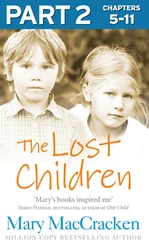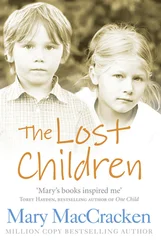* * *
And again she remembers: between father and son a gap widened by expectation and disappointment. The one feeding the other. Papa had sent Branwell to London to study art with the finest instructors in the kingdom, but the reports filtering back intimated that his heir was wasting his gifts and gratifying himself in the taverns of the capital. When Branwell finally returned, the two proud men looked upon each other and knew instantly that the time for conversation had passed them by somewhere on the road between Haworth and London. In truth, the experiment had been doomed from the beginning, for even as he silently packed his trunk in the simple room at the back of the Parsonage, the stubborn son understood that his disinterest in the rigours of study meant that he might soon be introducing failure into the world of his father. Poor Branwell, who chose now to make a sanctuary of the Black Bull. When the terse letter from the man in the next village arrived on Papa’s desk, claiming that his son was carrying on an adulterous affair with the man’s wife, Papa made it clear to Branwell that there would be no further sympathy or help, which served only to further stoke the fires of resentment between them.
The daily evidence of their brother’s decline caused both Charlotte and Anne to grow increasingly ill at ease. The young man’s beard was bedraggled, his clothes were unkempt, and Keeper growled each time Branwell slipped in and out of the kitchen door on his way to or from his tavern. Eventually an exasperated Charlotte and Anne abandoned their brother to Emily, who seemed unembarrassed by the task of caring for the failed artist, and each evening she was content to escort him upstairs and in the direction of his room before easing him out of his boots and making sure that his head was properly supported by a stout cushion. She knew full well that Branwell would have wasted hours in the public bar, inflaming his spirit with alcohol, advocating on the least popular side of all debates, and making a raucous pact with dissension whenever his fatigued colleagues proposed an honourable resolution to his illogical stances. Of course, his maddening obstinacy was informed by his knowledge that no matter how preposterous a position he adopted, irrespective of how brutally detached from reason he became, at the end of the evening, a gentle and compassionate hand would always appear by his side to conduct him to safety. Sleep, sweet Prince. Put aside your torment. And then, when she returned to her room, she would whisper, Papa, grant him some air. But in the morning, once again, there would be two men under a single roof and only enough oxygen for one man.
Even the roughest stone wears smooth and eventually offers no resistance. Branwell’s final illness was swift, and he lingered only a week, during which time he became a smaller, frailer version of himself; suddenly he was a man who was too tired to dress or even leave his bed. His entourage from the Black Bull deserted him, and each sister took turn to sit vigil on his final journey around the face of the grandfather clock that stood on the staircase of the Parsonage. Papa turned the key in the lock on the door to his study. On the Sunday that he lost his thirty-one-year-old son, Papa managed to preach a long sermon without making any reference to his bereavement. His three daughters, their rigid and disconsolate bodies enveloped in black, occupied the family pew, and they could clearly see Papa’s trembling hands as he clung to his text. The early-morning tolling of the bells had already alerted the village to the news that the fleeting conflict was at an end, but a stranger entering the church would never have suspected that the man with such disciplined posture, whose confident words rolled forth and filled every available corner of the stone edifice, had suffered a loss. A stranger would never have guessed the clergyman’s plight unless, of course, he noticed the quivering hands.
And then it was time to conceal the red-haired son. She watched a now-impoverished Papa mumble his words and strive to hold down the pages of his leather-bound Bible. The sky continued to weep its drops of ice, and she could feel them in her palpitating chest. It occurred to her that her dear brother was perhaps attempting to wrest her with him. Papa fell silent and took the rainfall in the face, and then he decided not to wait. He turned and walked the short distance to the Parsonage door and closed it shut behind him. The three bareheaded sisters linked arms, her haggard figure in the middle, and they waited for the men to complete their work and repair the unsettled earth. Soon after, the sisters found themselves alone under the low, bruised sky, and Charlotte and Anne now realized that they were holding Emily upright.
* * *
The truth is, since she took to her bed, she has lost sight of Papa. All that remains is the image of a sodden crestfallen man of God struggling to wrestle his Bible from the clutches of the wind before abruptly disappearing into the Parsonage. Poor Papa, over the years his losses have steadily multiplied. A wife, then two daughters, and now a son. Three surviving children occupy the house while he hides in his room. Once upon a time he would slip an arm around her waist and with the gentlest of touches raise her chin so that she was looking directly down the barrel of the pistol. Take aim. Now squeeze. Now rock with the blast, my dear. Don’t fight it. The cold metal in her hands and Papa’s warm arm laced tightly around her cumbersome, free-hanging skirt. She would take dead aim and scatter the crows. And then, after an hour of skipping between her duties in the kitchen and taking instruction, Papa would bestow upon her the briefest of smiles before reclaiming his weapon. But what was she supposed to do with this knowledge? You have a son. I cannot be your son.
Another day. The feeble morning sun spills through the window. Her austere, frost-kissed world is coming to life without her, but a calm of increased grace begins to console her mind. She closes her eyes and dreams of the boy who came from the moors, but she cannot see him. The boy who went back to the moors. She sees herself bounding tirelessly across the dry bracken and wispy grass in search of him, and she now enters a valley and finds herself running alongside a fast-flowing stream with long, unladylike strides and shouting to Keeper to concentrate and stay close. Keeper! She looks up at the sky, longing to vault from one cloud to the next; then she whistles loudly to attract the attention of her loyal wild creature. Keeper! She turns and stumbles, and now she sinks clumsily to one knee, her thin body racked with a seizure of coughing. Keeper nuzzles up to her side and continues to bark, but the boy has gone. She reassures her disquieted dog that all is well, for she knows that she will find the boy. A life reduced to one small window. This one view. The noise of her sister knocking gently on the door shakes her from her daydream. Again Papa has failed to visit. But dear Papa, it would be so much easier if you would just come to me and allow me to uncouple myself from you and go in peace. She listens as Charlotte pushes open the door and calmly closes it behind her. In a moment she will open her eyes and attempt to raise her head from the pillow. Please, Papa.
Dear Charlotte, do you remember when Papa deserted us for Liverpool and returned with the boy? The strange boy with blazing eyes who had lost his place in the world. Papa wrapped him in his cloak and brought him to us, do you remember? She feels her sister smoothing her brow and petitioning her to submit to the sombre inhospitality of the wintry day and attempt to rest. She knows that her sister has long ago forgiven her for abandoning her to heartache. The poor wild child was standing before us. When dear Charlotte returned from Brussels, she grew to accept that her younger sister was now dwelling in another place, and she asked Emily, Who are these unfathomable people with whom you spend your waking hours? But Emily would only smile distractedly, as she smiles now. She looks up into Charlotte’s worried face. Papa has little time for us, you do know this, don’t you? As far as Papa is concerned, there was only the boy, and now he is gone, so what is Papa to do? Retreat to his room and mourn? He unwrapped the boy from his cloak like a gift he wished to share, and now the boy is gone. Her sister lowers her voice. Please, Emily, you are confused. Your Mr. Earnshaw is another man. He is not Papa. Do you remember? Like a gift he wished to share . Her eldest sister continues to caress her brow, and Emily turns slightly and gazes at her and wishes that somehow she had been able to arrest poor Charlotte’s descent into despondency, but she was too busy pursuing the boy on the moors, and her passion rendered her incapable of offering comfort to anyone. Even reticent Anne scolded her for her indifference, but surely her sisters understood that she could never behave with wilful disdain towards either one of them. But dear Charlotte, Papa’s boy lived with a ferocity that frightened the gods themselves, you know this, don’t you? He deserved to be loved and protected, but it was the wickedness of the world that corrupted him. Papa’s boy was too beautiful for this world, you do know this, don’t you? You believe me, don’t you?
Читать дальше












